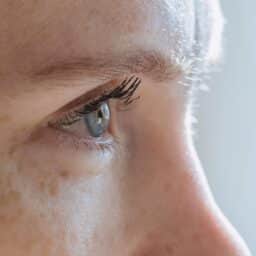Understanding Broken Nose Treatment: Manual Realignment vs. Surgery

In the heat of competitive games like touch football or basketball, accidents can happen, sometimes leading to a broken nose. If you find yourself in this situation, there are primarily two approaches to treatment: manual realignment or surgical intervention. Here’s a look at when each option is appropriate. Recognizing a Broken Nose Identifying a broken…
How Will Chilly Weather Affect My ENT Health?

As temperatures drop, the colder weather can take a toll on your ear, nose and throat (ENT) health. From dryness and irritation to a greater risk of infections, here’s a breakdown of how the colder months may impact your ENT system and what you can do to stay healthy. Increased Nasal Dryness Cold air, especially…
Halloween Safety Tips for Your Ear, Nose and Throat
Halloween is a time for fun, costumes and candy, but as with any holiday, it’s helpful to consider your overall health. With loud noises, cold weather and sugary treats, it’s easy to overlook how Halloween festivities at places like Bowman Orchards can impact your ears, nose and throat. Consider the following ways to protect your…
How to Know If Your Child Has a Deviated Septum and How to Treat It

A deviated septum occurs when the nasal septum, the wall between the nostrils, is displaced to one side. This condition can lead to breathing difficulties, frequent sinus infections and other complications. Identifying a deviated septum in your child early on can help in managing symptoms effectively. Here’s how to recognize the signs and explore the…
Exploring Surgical Options for ENT Conditions: Risks, Benefits and Recovery

ENT conditions are a common presentation in urgent care practices, and sometimes, treatment calls for surgical intervention. Medical advancements have made surgeries to address these issues more effective and safer than ever. In this post, we’ll dive into three common ENT surgeries, ear tube placement, nasal fracture repair, and endoscopic sinus surgery, and take a…
A Comprehensive Guide for Caring for Your Child’s ENT Health

Your child’s ear, nose and throat (ENT) health is crucial for their overall well-being, directly impacting their hearing, breathing and speaking abilities. To safeguard your child’s development and quality of life, it’s important to be proactive about their ENT health. Healthy Habits Fostering ENT health begins with cultivating healthy daily habits. Here’s how you can…
How To Remove a Foreign Object From Your Child’s Nose

Nasal obstructions in children can be a cause for concern. It seems that small objects have a way of finding their way into their tiny noses, which can be upsetting for parents. If your child is prone to shoving their dinner up their nose at Athos Restaurant, knowing how to remove the obstruction becomes crucial…
It’s Time to Make Your ENT New Year’s Resolutions

New Year’s resolutions often include setting goals for activity levels, healthy eating and mental health, but have you ever considered setting resolutions for your ear, nose and throat health? Now may be the time to do so, for both you and your family. Consider the negative impact chronic conditions may have had over your past…
What To Expect From A Nasal Endoscopy

A study of data from Medicare patients undergoing nasal endoscopy from 2000 to 2016 found that the total number of endoscopies increased by 313%. The procedure is used to look inside the nasal cavity and openings to the sinus passage. Your ear, nose and throat (ENT) specialist may recommend a nasal endoscopy if you have…
Common Causes and Treatments of Pediatric Nasal Fractures

A pediatric nasal fracture is a break in one or more bones of the nose of a child, also known as a broken nose. It’s reported as one of the three most common pediatric facial bone fractures. Seeing your child with a broken nose can be scary, so it’s helpful to understand the causes and…